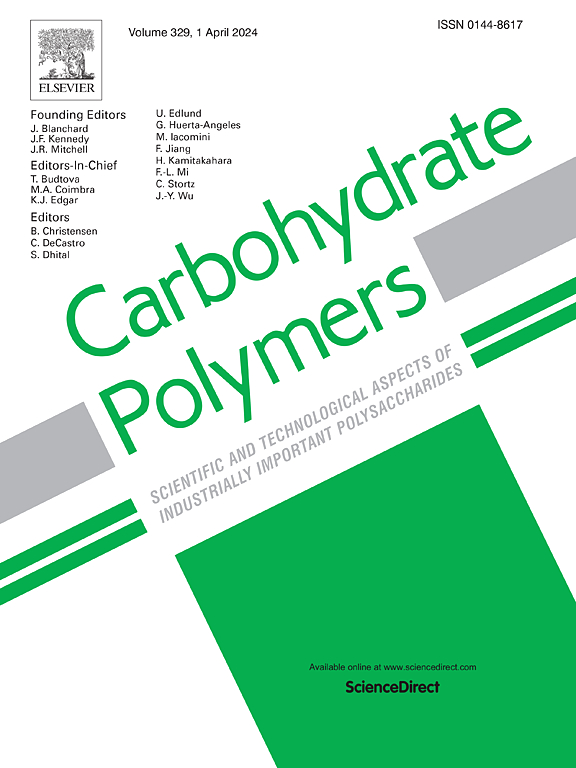An ethyl cellulose-coated bacterial cellulose based hydrophobic and degradable straw-like materials towards drinking straws
IF 10.7
1区 化学
Q1 CHEMISTRY, APPLIED
引用次数: 0
Abstract
Currently, we are facing global challenges like petrochemical resource depletion and plastic products induced environmental issues. Especially, the commonly used disposable straws in daily life represent potential issues like other plastic products. Overuse and inadequate handling of disposable straws could add burden to environmental problems due to their non-recyclability in most areas and incomplete biodegradability. Therefore, it is important to find a high-performance alternative to eliminate plastic straw-related environmental problems. Cellulose based derivative materials are recognized as sustainable substitutes for plastics, yet the hydrophilic nature restricts their application as straws. To solve this problem, this study introduces a microplastic-free straw made from ethyl cellulose (EC) enhanced bacterial cellulose (BC). This fabricated EC enhanced BC based straw exhibits improved mechanical properties with bending strength up to 66.82 MPa, good hydrophobicity with water contact angle up to 110°, and favorable heat resistance compared to raw BC based straws. These enhancements are attributed to its three-dimensional nanofiber network structure and intermolecular hydrogen bonds. Moreover, it can degrade completely decomposition within 20 days compared to the commercially available polylactic acid-based straw in soil. This EC enhanced BC based drinking straw is a health-conscious and environmentally friendly alternative to plastic straws.

一种以乙基纤维素包覆的细菌纤维素为基础的可降解吸管状疏水材料
当前,我们正面临着石化资源枯竭、塑料制品引发的环境问题等全球性挑战。尤其是日常生活中常用的一次性吸管,和其他塑料制品一样,存在着潜在的问题。一次性吸管的过度使用和处理不当可能会增加环境问题的负担,因为它们在大多数地区不可回收利用,而且生物降解性不完全。因此,寻找一种高性能的替代品来消除塑料吸管相关的环境问题是很重要的。纤维素基衍生材料被认为是塑料的可持续替代品,但其亲水性限制了其作为吸管的应用。为了解决这一问题,本研究介绍了一种由乙基纤维素(EC)增强细菌纤维素(BC)制成的无微塑料吸管。与原BC基秸秆相比,制备的EC增强BC基秸秆具有更好的力学性能,抗弯强度可达66.82 MPa,疏水性好,水接触角可达110°,耐热性好。这些增强归功于其三维纳米纤维网络结构和分子间氢键。此外,与市售的聚乳酸基秸秆相比,它可以在20天内完全降解土壤。这种EC增强的基于BC的吸管是一种具有健康意识和环保的塑料吸管替代品。
本文章由计算机程序翻译,如有差异,请以英文原文为准。
求助全文
约1分钟内获得全文
求助全文
来源期刊

Carbohydrate Polymers
化学-高分子科学
CiteScore
22.40
自引率
8.00%
发文量
1286
审稿时长
47 days
期刊介绍:
Carbohydrate Polymers stands as a prominent journal in the glycoscience field, dedicated to exploring and harnessing the potential of polysaccharides with applications spanning bioenergy, bioplastics, biomaterials, biorefining, chemistry, drug delivery, food, health, nanotechnology, packaging, paper, pharmaceuticals, medicine, oil recovery, textiles, tissue engineering, wood, and various aspects of glycoscience.
The journal emphasizes the central role of well-characterized carbohydrate polymers, highlighting their significance as the primary focus rather than a peripheral topic. Each paper must prominently feature at least one named carbohydrate polymer, evident in both citation and title, with a commitment to innovative research that advances scientific knowledge.
 求助内容:
求助内容: 应助结果提醒方式:
应助结果提醒方式:


